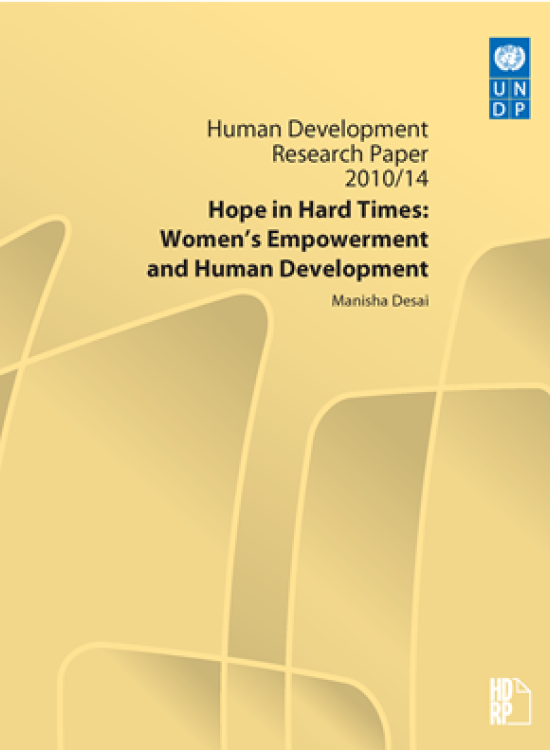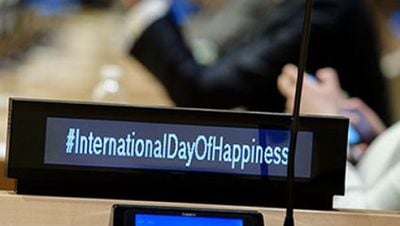Hope in Hard Times
Women’s Empowerment and Human Development

Download Report by Language
Document
hdrp201014.pdf
(465.71 KB)
Citation
Desai, Manisha. 2010. Hope in Hard Times: Women’s Empowerment and Human Development. New York.
Hope in Hard Times
Women’s Empowerment and Human Development
Posted on: January 01, 2010
This paper addresses the conceptual and methodological issues related to women’s empowerment, the trends in women’s empowerment over the last 20 years in key areas such as education, health, economic and political participation, and finally the best practices of state and non-state actors in empowering women. Following a brief critique of human development, it begins with a discussion of the growing conceptual consensus around empowerment, i.e., empowerment being control over resources, women’s agency, a process and outcomes, to the methodological issues involved in its measurement, specifically focusing on the Gender Empowerment Measure and arguing that minimally the measure needs to move away from its urban, elite, and formal employment bias. The trends in women’s empowerment over the past 20 years show that while there have been gains in primary and secondary education, in political representation at the national level, and in waged labor, and a decline in fertility and maternal mortality, violence against women and HIV/AIDS continue to be endemic and these trends vary across regions and within countries urban and rural poor, ethnic minorities, and older and disabled women fare worse on all indicators with the current economic crisis reversing many gains. Furthermore, a decrease in measures of gender gap do not translate into gender equality and positive trends are often accompanied by negative trends resulting from unintended consequences of development. Finally, it highlights some government best practices such as quotas, cash transfer programs, gender budgeting, and community based micro enterprises, some movement practices, i.e., local women run community based programs to combat violence and HIV/AIDS and transnational exchanges, unions campaigns such as Decent Work for Women and corporate practices such as gender equality seals and corporate social responsibility.

